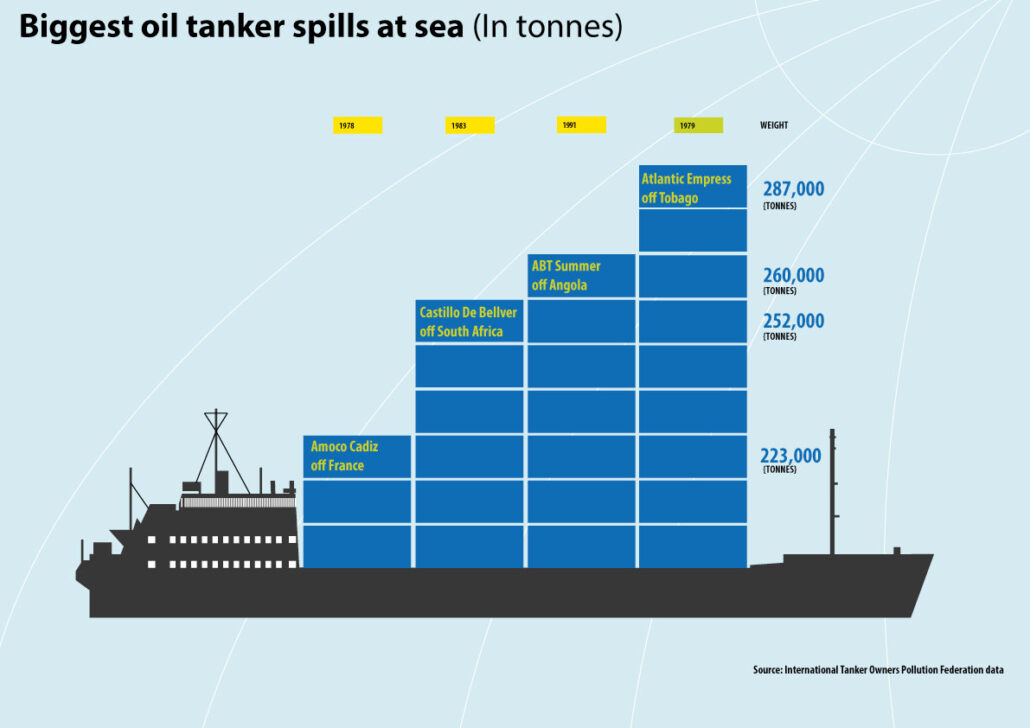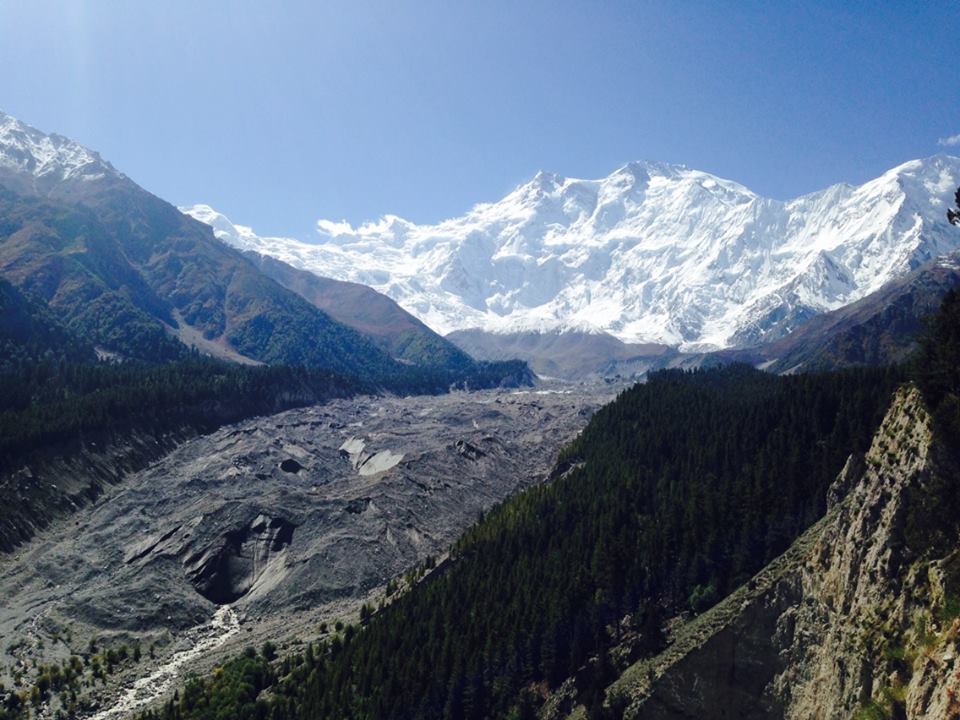Why Do Oil Tankers Crash?
The recent MV Wakashio oil spill off the coast of Mauritius didn’t leak a huge amount of oil, but it happened near two protected marine ecosystems and a wetland of international importance.
The MV Wakashio ran aground on a coral reef on 25 July with 4,000 tonnes of the fuel, causing an ecological emergency. The Japanese tanker leaked hundreds of tonnes of fuel oil off the Mauritius coast and then broke apart. Mauritius is home to world-renowned coral reefs and popular with tourists. The environmental campaign group Greenpeace sees any oil spill should as a source of concern because of the damage they cause.
“Even relatively small volumes of oil can spread widely and cause a major impact, especially if they occur close to shore in calm weather and in sensitive marine habitats.”
David Santillo, a scientist with Greenpeace.
When a major oil tanker crash happens, we usually see it on the news. It’s become a familiar sight: oils slicks spreading across the water, and groups of volunteers in protective suits diligently cleaning beaches. What doesn’t make the news are the common oil tanker accidents that may not have the economic or environmental consequences of major spills, but that still affect the lives of marine professionals and their families.
Since 1967 The International Tanker Owners Pollution Federation Ltd keeps track of oil spills across the world that are more than 700 tonnes. These come from oil tankers, ore carriers and tank barges.
According to statistics from insurance companies, 80% of oil tanker accidents which cause oil spills at sea are a result of human errors. These range from badly handled manoeuvres, neglected maintenance, a lack of checking of systems, little or no communication between crew members, tiredness, or an inadequate response to a minor incident causing it to become a major accident.

The fact is that just over 5.5 million tonnes of oil were spilt into the world’s seas by oil tanker accidents between 1970 and 2000. That is a very large amount of oil!
We may not have noticed the impact of some of the largest oil spills because they happened far offshore, but they did affect the oceans in some way. Others which were not quite as large caused huge damage because of where they occurred, such as the Exxon Valdez spill in Alaska, 1989.
© Copyrights 2024 All Rights Reserved. 17Promises




